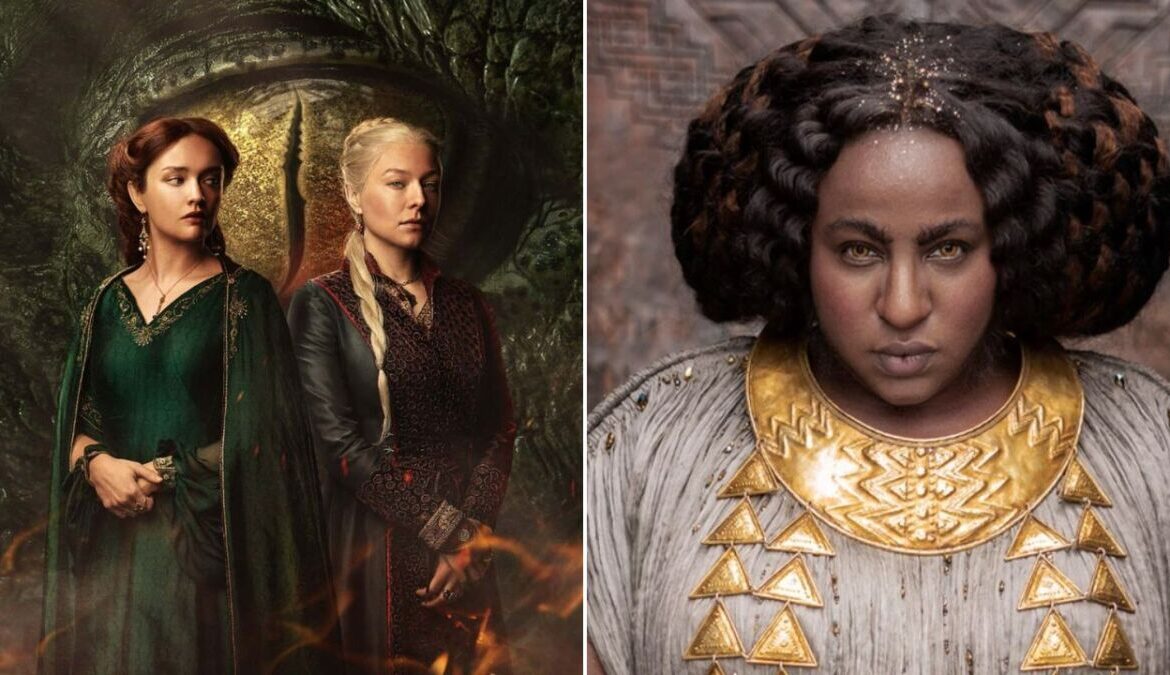When Amazon boasted in 2017 that it had acquired the rights to a prequel based on the works of J.R.R. Tolkien, the internet was quickly awash with so much chatter, often decidedly toxic, that it took a war for the never-ending bickering between disgruntled purists and excited optimists to finally fade into the background. HBO’s announcement of a Targaryen-centric Game of Thrones prequel titled House Of The Dragon, meanwhile, was met with far more optimism. Finally, a chance to rectify the mistakes of the original fantasy epic’s disastrous final season.
Cutting through the relentless stream of hype, disdain, controversy, anger, excitement and apprehension that surrounded The Rings Of Power has been like trying to hack through a rainforest with a pen knife made of cardboard, discussions of the show’s actual merits doomed to be overshadowed by the uproar surrounding it. Many had already written off The Rings Of Power before a second of J. D. Payne and Patrick McKay’s billion-dollar adaptation had seen the light of day on Amazon Prime. House Of The Dragon, by contrast, endured no such millstone. Perhaps the idea of one of the world’s largest conglomerates co-opting the work of arguably the greatest fantasy writer of all time proved unpalatable for many die-hard Tolkien fans.
This does, however, appear to be one of those rare instances in which the prognoses of self-appointed internet experts may have proved somewhat prophetic. Admittedly, The Rings Of Power has been fighting an uphill battle for approval ever since it was announced, but there’s a feeling the show has failed to match the legacy of its source material. House Of The Dragon, meanwhile, appears to have lived up to its billing as a worthy “successor” to its original progenitor. In terms of reception, the would-be rivals are worlds apart.
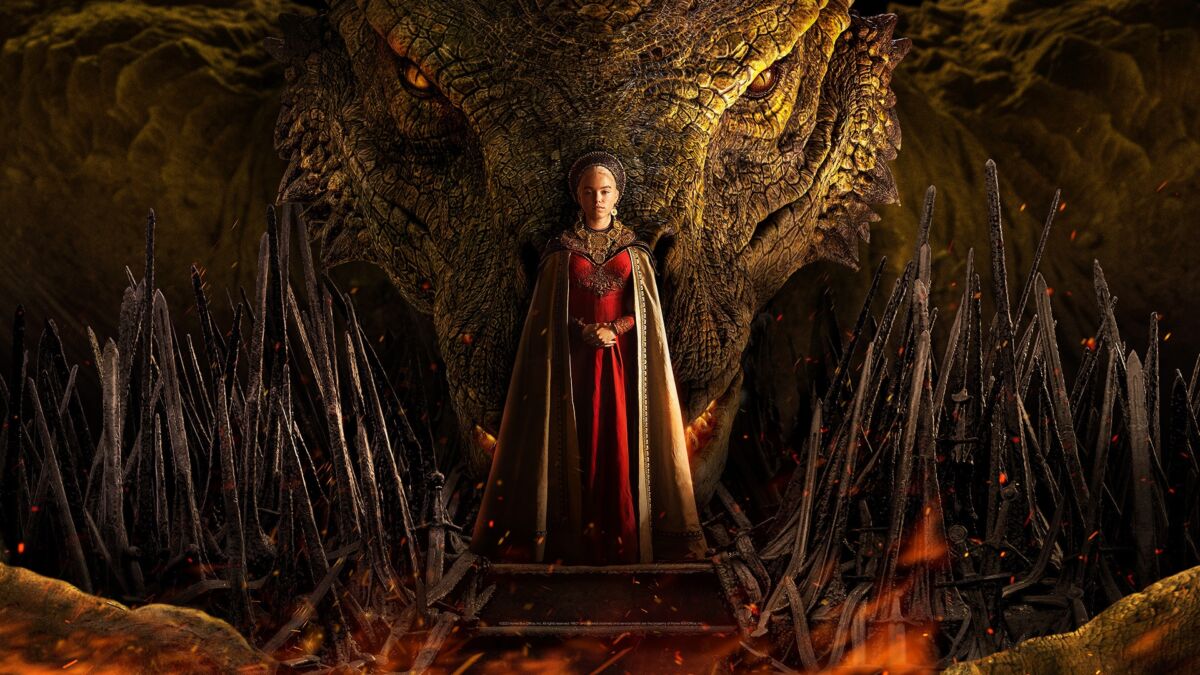
The Rings Of Power is a billion-dollar show, and with that hefty outlay comes certain expectations regarding its presentation. This is the first of The Rings Of Power’s odd paradoxes, looking at all times both incredibly big budget and also ludicrously low-rent, an inexplicable mismatch that frequently leads to a tangible feeling of viewer dissonance. Just when your jaw has fallen through the floorboards at the latest sumptuous shot of Númenor looking resplendent, the action cuts to the insufferable Harfoots trudging about an empty forest with fake chestnuts in their hair and a bit too much rouge on their cheeks. It’s like watching James Cameron’s Avatar and your six-year-old’s school nativity play at the same time.
House of Dragon’s financial outlay has been less substantial (hardly on a shoestring, mind), but its mucky, grimy feel is more in keeping with the dirt and squalor we’re more accustomed to from George R.R. Martin’s brutal and unforgiving fantasy universe. Any dissonance between the squalor of King’s Landing’s back alleys and its regal Red Keep makes a lot more sense in a world characterised by massive social inequality and wanton acts of savage barbarism. Even when showcasing some decidedly squirm-making uncle-on-niece action, House Of The Dragon doesn’t sugar-coat or censor its rather challenging source material. Amazon’s effort feels airless and sanitised. Its HBO rival, replete with gore and filth, is far more intoxicating.
This commitment to filth allows for the cultivation of a far more consistent tone, so much so that it’s easy to forget that you’re watching an endless parade of incestuous nepotism, gratuitous hyper-violence and blonde-haired tyrants flying about on their pet CGI dragons. Even with all these moving parts, Westeros feels cohesive and alive rather than unwieldy and inconsistent, a faux-Medieval soap opera that never descends into pure pantomime.
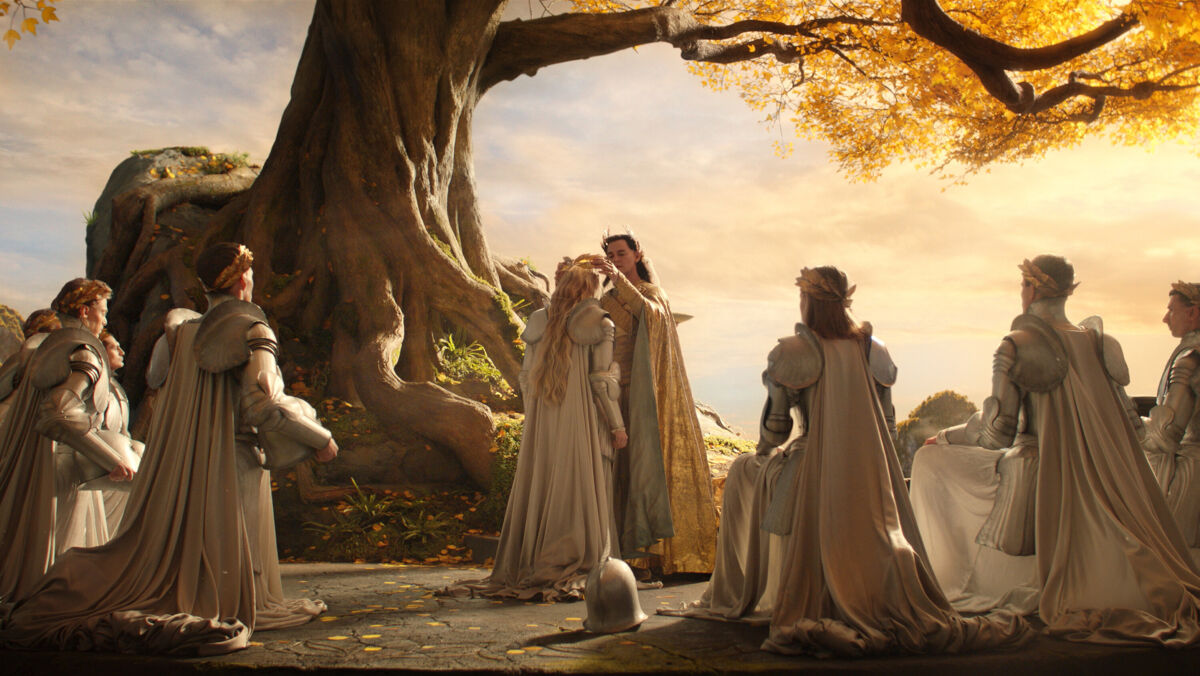
The Rings Of Power, meanwhile, takes clunkiness to new levels, attempting to balance the sort of grounded, prestige-feeling dialogue of its rival with the mannered, grandiose tone of its primary source material. The first episode’s prologue, in which Galadriel’s brother Finrod explains that a ship floats because, unlike a stone, “its gaze is not downward but up”, is not only an affront to everything that Archimedes stood for, but pseudo-poetical bullshit. Thanks, Finrod, I never realised that stones sunk to the depths because of their pessimistic worldview.
The show’s dialogue isn’t uniformly terrible, but when you’ve had Game of Thrones and its prequel setting a new bar for what an epic of this sort can be, it certainly highlights the deficiencies of lesser attempts. The Rings Of Power is also infuriatingly slow, not aided by a cast of characters whose motivations seem to be almost non-existent besides the exceedingly obvious or crushingly mundane. House of Dragon continues its predecessor’s legacy of being a viper’s nest of desires, schemes, ambitions and unresolved ploys, each figure in its cast navigating his or her way around a spider’s web of vice, intrigue and betrayal. Every scene is charged with the low crackle of a powder keg always ready to ignite and bring the entire kingdom crashing down.
Amazon’s own attempt has almost no plot besides the overarching threat of Sauron or Oren and his motley band of orcs, leaving most of the central characters lost in a malaise of motionless static. The story finally gets going by episode 6, but not only is it a long trip guaranteed to test the sturdiest of wills, proceedings crash back down to Middle-earth by spending the next hour-long episode picking over the wreckage of the last instalment’s harrowing events, much like if Jaws 2 had been nothing but a load of traumatised lifeguards sitting on an empty beach tearfully recounting just how awful it was when that big nasty shark turned up. Tolkien’s books may have taken a while to get going (it’s more than 100 pages before Frodo even leaves The Shire), but even he would be tapping his feet in sheer frustration.
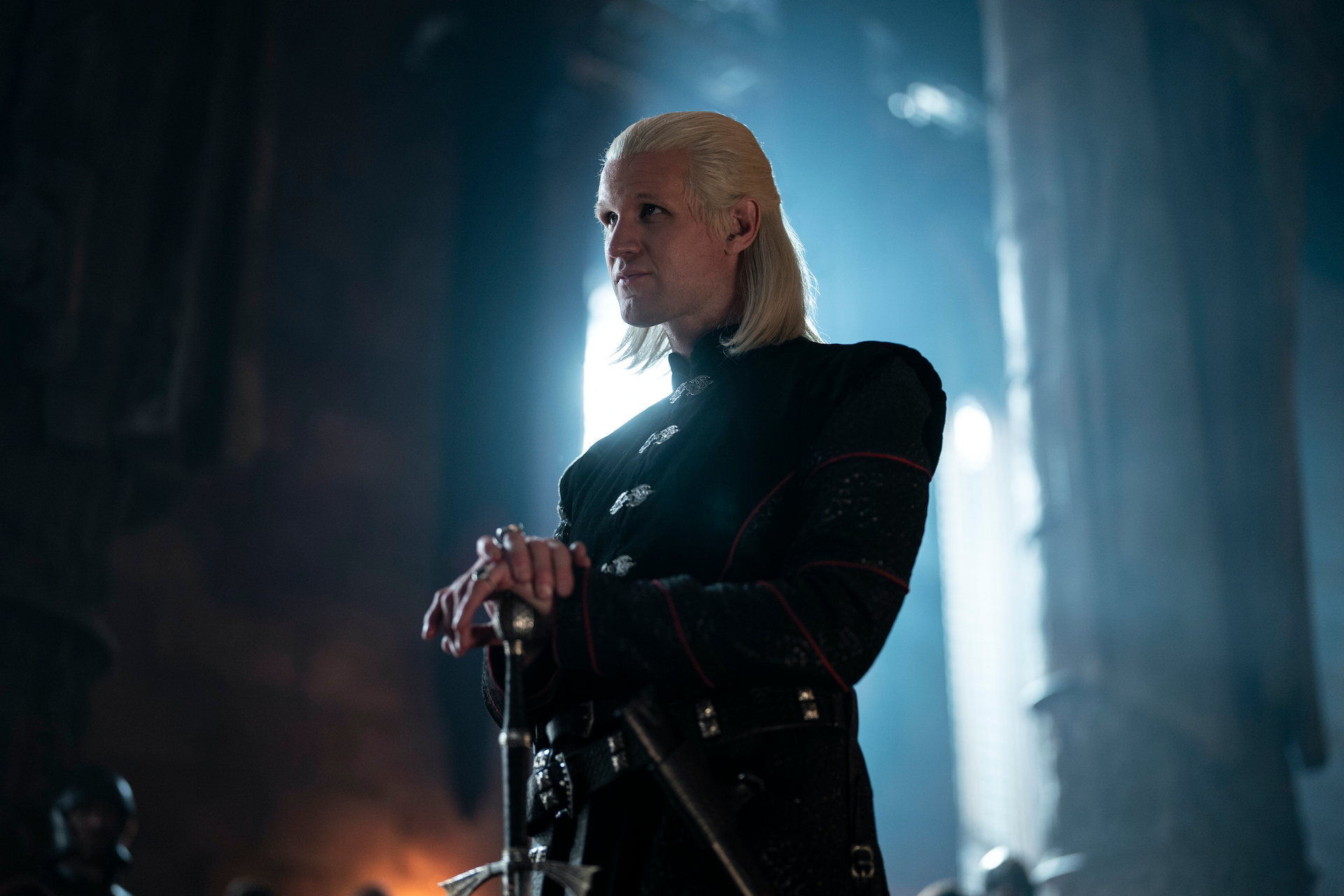
Admittedly, House Of The Dragon doesn’t have the same astonishing levels of depth and complexity that made the earlier seasons of Game of Thrones so renowned, but that’s to be expected from a more intimate creation based on a less substantial text rather than A Song of Ice and Fire’s rather more hefty fantasy tomes. House Of The Dragon is wonderfully claustrophobic at times, smashing its smaller cast together and watching them implode as powerful figures are always prone to do.
While few of the core members in HOTD reach the gold standard of characterisation set by the likes of Tyrion Lannister or Sandor Clegane, these are still three-dimensional beings whose nobility and honour often sit side by side with their avarice, desire and overbearing ambition. The writers also realise that punctuating the intrigue of the king’s court with a little gratuitous sex, violence or fire-breathing action is enough to keep interest when the plot occasionally sags or slows. The Rings Of Power has no such bag of tricks to hold its viewers’ attention, audiences instead treated to another shot of Galadriel looking glum or a mute giant with amnesia learning to speak English in what feels like real-time.
Character is a deficiency that Amazon’s prestige effort fails to overcome. The Rings Of Power ostensibly follows Galadriel’s quest to rid Middle-earth of Sauron’s scourge, and while this should immediately place the lady of Lothlórien into our collective affections, Galadriel has all the easygoing charm of a Victorian schoolmaster’s cane with a grumpy face drawn on it, her immovable expression an iron-jawed amalgamation of scorn, anger and ill-hidden contempt. There are orc extras afforded more nuance and direction than Morfydd Clark’s Lady of Light. It’s hard to place the blame at Clark’s door, certainly the show’s pervasive deficiencies in writing that have likely rendered the Welsh actor’s depiction of Galadriel so one-dimensional, but Galadriel is indicative of a problem that runs through the heart of Middle-earth – its characters are often incredibly thinly-drawn.
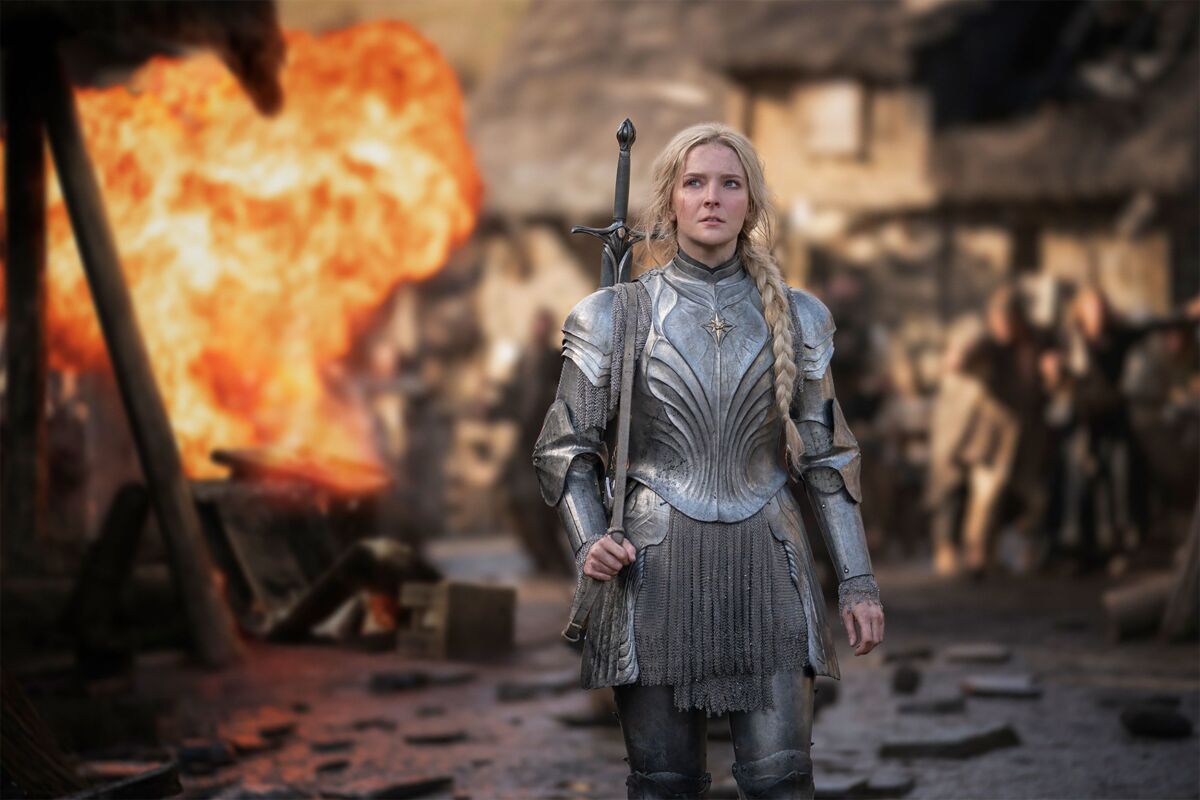
On the subject of casting, why does every dwarf have to boast a thick ginger beard and speak in a rasping Glaswegian drawl? Tolkien may not be turning in his grave but there’s a good chance Walter Scott and Robbie Burns are quietly seething six feet under. Almost every Harfoot sporting an overdone “diddly-dee” Irish accent, meanwhile, makes their sequences feel like a racist reimagining of Bill and Ben the Flower Pot Men. “Why are we migrating south, ‘ee begorrah Paddy?” “To get to the pot of gold, o’course”. Admittedly, this continues a trend that we’ve had since Peter Jackson’s seminal adaptations, but it’s hard not to feel patronised on behalf of anyone in this world who doesn’t walk around speaking like Tom Hiddleston or Keira Knightley.
This all sounds like a rather damning indictment of a creation that so often demonstrates flashes of real inspiration, but with a budget this lavish and a world so fully formed, it’s hard not to feel as though The Rings Of Power fails to deliver on the promise of its production and the legacy of Tolkien’s work. There are glimpses of greatness whenever a little action flickers into life, but too often these are sparks of light in an otherwise dull and drab narrative that makes a habit of dragging its heels. The orcs are fearsome and satisfyingly unburdened by excessive CGI, the worlds are appropriately stunning for the most part, and there are glimpses of the genuine terror that sits at the heart of Tolkien’s best storylines.
Mostly, however, The Rings Of Power is a great expedition without a grand plan, a wonderful diorama but never anything more substantial, flabby and directionless in comparison to House Of The Dragon’s tight, well-plotted efficiency. Too many of the errors displayed are simply inexcusable, neglecting writing, direction and character development in favour of (mostly) sumptuous visuals and prestige production values.
The great paradox of Amazon’s titanic creation is that it falls between two stools, moving too slowly to satisfy casual viewers and alienating more dogmatic purists with its deviations from what devotees would recognise as the spirit of Tolkien’s stories. The Rings Of Power needs to figure out what it wants to be and where it wants to go, because it currently feels like a ship without a rudder, sailing along on a neverending journey without ever finding a purpose or a place to call home.
READ MORE: 10 Shows Like House Of The Dragon You Should Watch
Some of the coverage you find on Cultured Vultures contains affiliate links, which provide us with small commissions based on purchases made from visiting our site.
